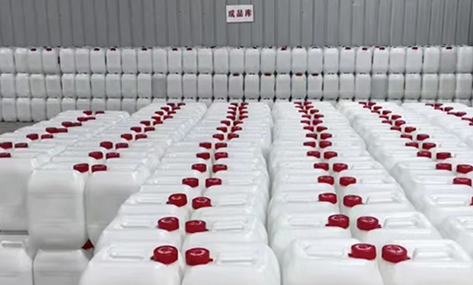
10 月 . 12, 2024 00:21 Back to list
Purity Analysis of Glacial Acetic Acid for Laboratory and Industrial Applications
Understanding Glacial Acetic Acid Purity
Glacial acetic acid, a concentrated form of acetic acid, is a colorless liquid with a pungent odor and a high degree of purity, making it an essential solvent and reagent in various chemical industries. It is called glacial due to its ability to freeze at temperatures around 16.6°C (62°F), forming ice-like crystals. The purity of glacial acetic acid is a critical parameter affecting its applications in laboratories, food processing, and chemical manufacturing.
Importance of Purity
The purity of glacial acetic acid typically refers to the concentration of acetic acid in the solution, often expressed as a percentage. High-purity glacial acetic acid generally contains 99% or more acetic acid, with minimal water and other impurities. This high level of purity is crucial for many applications, as even small impurities can alter the behavior of the acid in chemical reactions, leading to unwanted by-products or affecting the efficiency of processes.
In laboratory settings, glacial acetic acid with high purity is essential for conducting accurate experiments. It is often used as a solvent in chemical analyses, titrations, and synthesis reactions. Impurities in lower-quality acetic acid can interfere with these processes, resulting in erroneous data or ineffective reactions. Therefore, when researchers select glacial acetic acid for their experiments, they must ensure that it meets stringent purity standards.
Industrial Applications
Glacial acetic acid serves various purposes across multiple industries. In the food industry, it is utilized as a food preservative and flavoring agent due to its antimicrobial properties. The purity of the acetic acid used in food applications is regulated to ensure safety and compliance with food quality standards. For this reason, food-grade glacial acetic acid is typically required to meet specific purity criteria, generally above 99.5%.
glacial acetic acid purity

In the chemical manufacturing sector, glacial acetic acid is a vital feedstock for producing numerous chemical compounds, such as acetic anhydride, acetate esters, and various other synthetic fibers and plastics. The purity of the acetic acid is essential to ensure the quality of these end products. Contaminants can cause variations in the properties of the manufactured chemicals, leading to potential failures in products that rely on tight specifications.
Synthesis and Quality Control
Manufacturers of glacial acetic acid deploy various methods to achieve and maintain high purity levels. The production process typically involves the carbonylation of methanol, resulting in acetic acid, which is then purified through methods such as distillation. This process not only increases the concentration of acetic acid but also removes unwanted impurities.
Quality control measures play a vital role in ensuring the purity of glacial acetic acid. Regular testing is conducted to analyze the composition of the acetic acid and detect any contaminants. Parameters such as water content, color, odor, and the presence of metal ions are evaluated during quality assessments. These tests are crucial to provide manufacturers and consumers with the assurance that they are working with a product that meets their specific needs.
Conclusion
In summary, the purity of glacial acetic acid is a key determinant in its effectiveness and application across various industries. High-purity glacial acetic acid is critical for laboratory research, food preservation, and chemical manufacturing. Awareness of purity standards and robust quality control measures ensures that this versatile substance can be leveraged effectively while maintaining safety and compliance with industry regulations. Thus, as industries continue to utilize glacial acetic acid, understanding its purity will remain paramount for achieving desired results in diverse applications.
